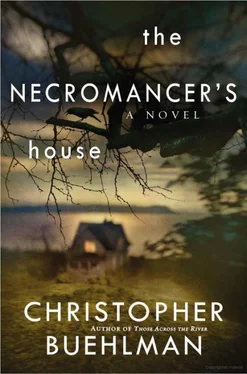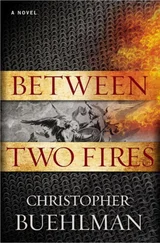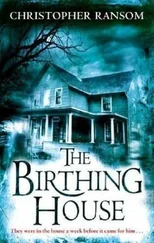The young man turns around.
Wild-bearded, black haired. Wild-eyed, too. Probably one of the damned Russians. Not the one who pissed on the basil, though. That one had a potbelly and this one is skinny. Emaciated, even. The front of the T-shirt is visible now.
Pac-Man?
The man smiles at him, but it’s not friendly.
“Excuse me!” he says.
Call the police, this is trespassing and it’s legitimate to call.
Hello, officer? Yes, a badly groomed boy is reading on my bed. Does the National Guard have a spare tank it can send by? This looks dangerous.
He taps again.
“What are you doing in my house?”
Jim shields his eyes against the glare, peering through the dry pane. He watches the man go into the bathroom, fish around in a drawer, come out with a hair dryer. The dryer he uses to dry the henna dye he puts in his beard.
The boy returns with the dryer, points it at the pane the man squints through. Turns it on—he hears it whine.
But he didn’t plug it in.
A patch of fog appears on the glass where it was heated.
No, really, he didn’t plug it in.
Now the boy’s finger traces letters in the fog.
Why didn’t he breathe on the pane?
HAVE YOU
Because he doesn’t breathe.
REALLY
Get in the car.
MADE FRIENDS
Just get in the car figure it out later you’re hypnotized this is dangerous what about the birds and the dryer HE DIDN’T PLUG THE FUCKING DRYER IN! RUN!
WITH DEATH?
When the youth’s finger dots the bottom of the question mark, the windowpane cracks. The professor backs up, backs straight into his nightstand.
He is inside his bedroom now.
Somehow the room and outside switched shell-game fast.
Like teacups, one of them poisoned, in a spy movie.
He feels dizzy.
He sees his breath.
It plumes from his open mouth.
So cold.
He can’t seem to shut his mouth.
None of this is real.
I was just at the store!
He can only gape and shake his head as he watches snow begin to fall from the roof of his bedroom.
Andrew appears in the bathroom at Dino’s coffee shop in Yellow Springs, Ohio. A fortyish woman sits on the commode next to him, openmouthed, smartphone in hand, confused. He wouldn’t have guessed her as the type to enjoy Angry Birds, but that is in fact what she is playing. She begins to pull her pants up over her knees, moves her mouth as if to form a word. It looks like it’s going to be Who . Before she can speak, however, he smiles disarmingly and says, “I know you’re a bit startled, but there’s nothing to worry about. I’m not actually here.”
“Of course you aren’t,” she says, as if confirming the innocence of a wrongly accused child, and goes back to her game.
Andrew steps into the hallway, shuts the door behind him, peeks into the back room. His friend Eric, an eminently likable red-bearded poet and musician who serves as the unofficial mayor of Yellow Springs, says “ Paisan! ” when he sees the magus, stands up and gives him a back-slapping, fraternal hug.
“Can I borrow your car for two hours?”
Eric hands him the keys.
• • •
The borrowed car smells like kids.
Andrew loads his bouquet of sunflowers and single bottle of Yuengling into the backseat, next to a toy hammer and a tiny pink sock.
He drives to Enon.
He drives home.
• • •
The sky shines with the kind of bright, sunless gray made to punish hangovers. Luckily, Anneke is nursing hers two states away, and Andrew hasn’t got one. He’s just exhausted.
The Enon cemetery is one of three in Enon; Mud Run and Prairie Knob (behind the Speedway corporate office) are closed now, stacked thick with Civil War–era dead. The Enon cemetery holds a number of these, mostly resting under tombstones, but a few dozen of the white obelisks favored by the nineteenth century’s wealthier dead stick up like fish spines; the largest spire pokes heavenward from atop a hill and reads:
IN MEMORY OF THE PATRIOTS
OF MAD RIVER TOWNSHIP
WHO DIED FOR THE UNION
1865
The second largest remembers one Leander J. M. Baker and his wife, Martha. An Ed Baker’s phallic monument juts nearby, both of these overtopping a sextet of smaller spires in the foreground, all belonging to the fun-loving Funderburghs. Andrew follows a sort of reverse Mohawk of shorter, darker monuments plowed between the old obelisks and tombstones, these dating from the middle eighties when it was decided to eliminate the walkway that used to bisect this part of the boneyard and to start planting Enonites between their forefathers.
Andrew kneels before and kisses his mother’s small stone, then lays his armful of sunflowers down, not bothering with a pot or water. This was how his mom left flowers for Grampa John Standingcorn.
The flowers are for the dead, not the living. All these folks who stand ’em up in water’s just showing off. Sooner these flowers brown, the sooner Grampa gets ’em.
ELIZABETH
STANDINGCORN
BLANKENSHIP
The letters crowd awkwardly on the pinkish-gray stone, and he furrows his brow remembering the fight he had with his brother about including their mother’s Shawnee maiden name.
She never went by that. It’s too long. And it’s not Christian.
He sees Charley standing in front of him, pointing a finger for each of these arguments until he has made a proper pitchfork of his hand, the irony lost on him.
Charles Stewart Blankenship doesn’t do irony.
He also doesn’t do follow-up, which was why Andrew’s last-minute call to the monument company decided the Standingcorn matter.
Charley hates his Indian blood and probably thanks his beefy white Jesus every night that he inherited his father’s pink tones and brown hair and left Andrew with the nutshell complexion and inky black mane of his grandfather.
Charley wants nothing to do with his “occult-dabbling” Indian-looking brother.
The elder Blankenship sibling has made himself rich on a series of instructional CDs about how to make oneself rich. With Jesus. It’s called The Catch , and it tells the listener how to focus concentration and will on making wealth appear. To say certain ritualistic things every day and to believe and visualize. To implore the Fisherman for a bountiful catch.
It works.
At least, it does for Charley, who is mildly luminous.
And probably for anybody else who is, too.
That his magic-hating older brother has made himself a millionaire by unwittingly practicing low-grade magic is one of the most beautiful ironies Andrew Ranulf Blankenship is aware of.
Charley would argue that it’s not magic because he calls on Jesus to make the money roll in. Andrew doesn’t know much about Jesus, if there is a Jesus, but he doubts that the guy who said it was easier to get a camel through the eye of a needle than a rich man into heaven would be shoveling Benjamins at his believers.
Charley is tone-deaf to hypocrisy.
Charley doesn’t do irony.
Their shared father did, though.
Their father the cop, the actual fisherman, not of men or Benjamins, but of river trout.
Andrew opens the Yuengling and pours it into the grass before the stone just next to Elizabeth’s, which says simply:
GEORGE
BLANKENSHIP
“Sorry it’s warm, Dad.”
Читать дальше












